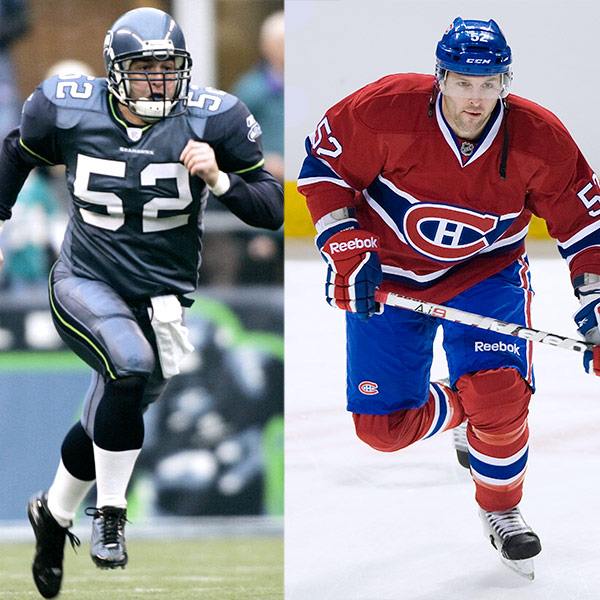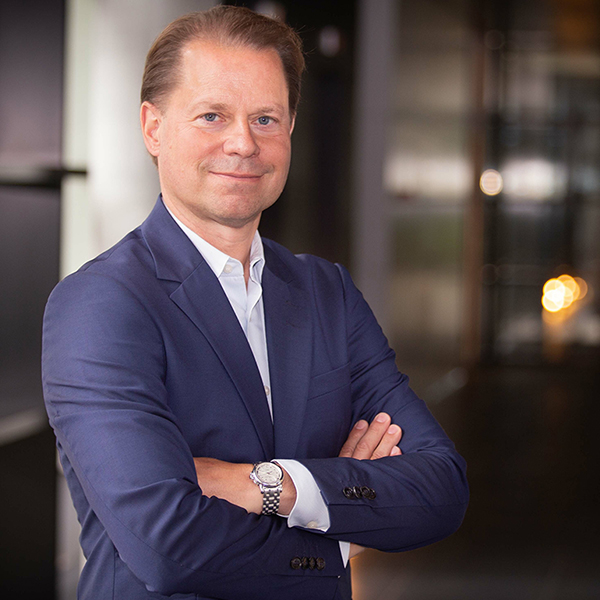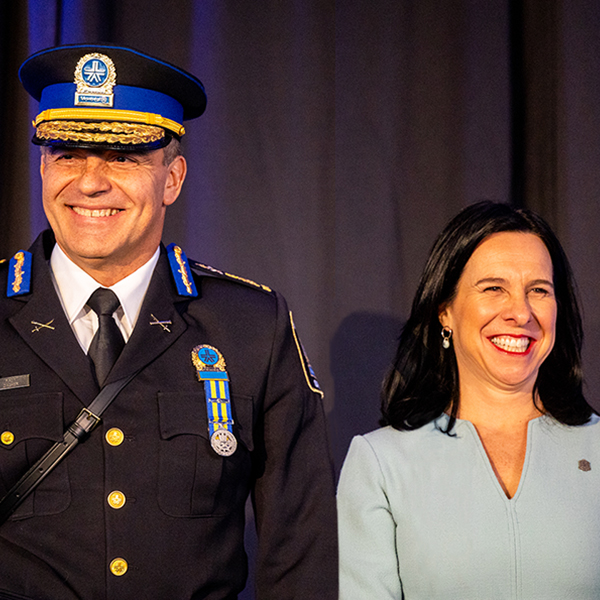The remarkable career of Chantal Vallée, MA’02, could make for a good movie some day. The determined coach who transformed a perennial loser into national champions, then smashed gender boundaries by taking on a head coaching position for a men’s sports team – you could easily see Disney optioning that story. Vallée even knows who she wants to play her in the film.
Vallée is the new general manager and head coach of the Hamilton Honey Badgers men’s professional basketball team. The team will begin playing in the newly created, six-team Canadian Elite Basketball League in 2019. Starting in May, each team will play 20 games in 15 weeks, plus a championship round. The league is hoping to add another six teams for the 2020 season.
Vallée is the first woman to hold the dual job of general manager and head coach in a men’s professional basketball league. But that’s not the only reason why her remarkable career would make a great film.
In 2005, Vallée was named head coach of the women’s basketball team at the University of Windsor, where the Lady Lancers had posted a winning record only four times in the past 45 years. But after her fourth year as coach, the team went 22-1 in division play, recorded its first ever Ontario University Athletic Provincial Championship title and finished as the fourth best team in Canada.
She would go on to guide the Lady Lancers to five straight national titles, winning 19 coaching awards in the process.
“I know it sounds like a movie,” Vallée says with a laugh, “but there were a lot of challenges and setbacks in that success. And lots of work in scouting and recruiting the right people to attend the University of Windsor. But I always found a way to create a positive attitude for myself and the team, and kept a clear vision of what I wanted the team to achieve until our success actually happened.”
And who would she like to see portray her when Hollywood comes calling? “Hillary Swank, like in the movie Million Dollar Baby. She has a sports thing.”
The same successful formula she used to spark her university team will now be applied to how she runs the Honey Badgers. At the time of this writing, the league is still working out how it will draft players, but Vallée has said she has already talked to Canadian players now on the rosters of European teams about coming back to play in the new league.
“Starting a sports team is like starting a business,” she says. “You need good personnel in your players – gritty people who want to spend time in the gym. And once we have the players, we see who can shoot, defend, make jump shots. We create a team aspect, where everyone understands their roles – some may become stars, some will become role players. My job is to get my employees to perform, and let them know their reward is a championship.
“My role also involves a lot of personal development for the players. I push them, but I care about them as humans. I’m teaching them life skills as well. A professional basketball player’s career is, what, 10 years? Then what? I talk to them about what they want to do after their career. For sure, basketball is important, but I’m also investing in human beings. After their careers I want them to continue to be stand-up persons and good citizens who change things around them for the better.”
She developed her philosophy of coaching at McGill University, where she was an assistant coach of the women’s basketball team, and earned a master’s in physical education in coaching and sports psychology. She worked closely with her thesis advisor, Gordon Bloom, a professor of kinesiology and physical education, and an expert on the psychology of sports.
In 2016, Vallée and Bloom co-authored “Four Keys to Building a Championship Culture,” based on her experiences coaching at Windsor, Vanier College, the University of British Columbia, and with the Quebec provincial team. The paper was published in International Sport Coaching Journal.
“Her success doesn’t surprise me at all,” Bloom says. “When she came to study with me in 2000, she said, ‘My aim is to do research to make me a better coach.’ And she keeps challenging herself. She often calls me after a season to ask, ‘What new research has come out?’”
John Lashway, president of the Honey Badgers, says he hired Vallée for three reasons:“Chantal is a proven winner who has coached arguably the best basketball program in Canada the past 13 years, winning 79 percent of her games—83 percent when the stakes are highest in the post-season—and five consecutive national championships. Second, she shares my commitment to values-based leadership and developing all aspects of an individual. And third, blue chip companies often ask her to teach them about transforming their culture into one of success, and about motivating and inspiring their people. That’s valuable in a start-up organization like the Canadian Elite Basketball League.”
Reflecting on her groundbreaking hire, Vallée hopes other women are inspired to seek careers in the traditionally male-dominated sports industry. “I find it very rewarding to think that anywhere in the world, a young woman can look at what I’ve done and say, ‘Maybe I can do it, too.’ The message to men and women is you can be hired on qualifications and credentials.”


